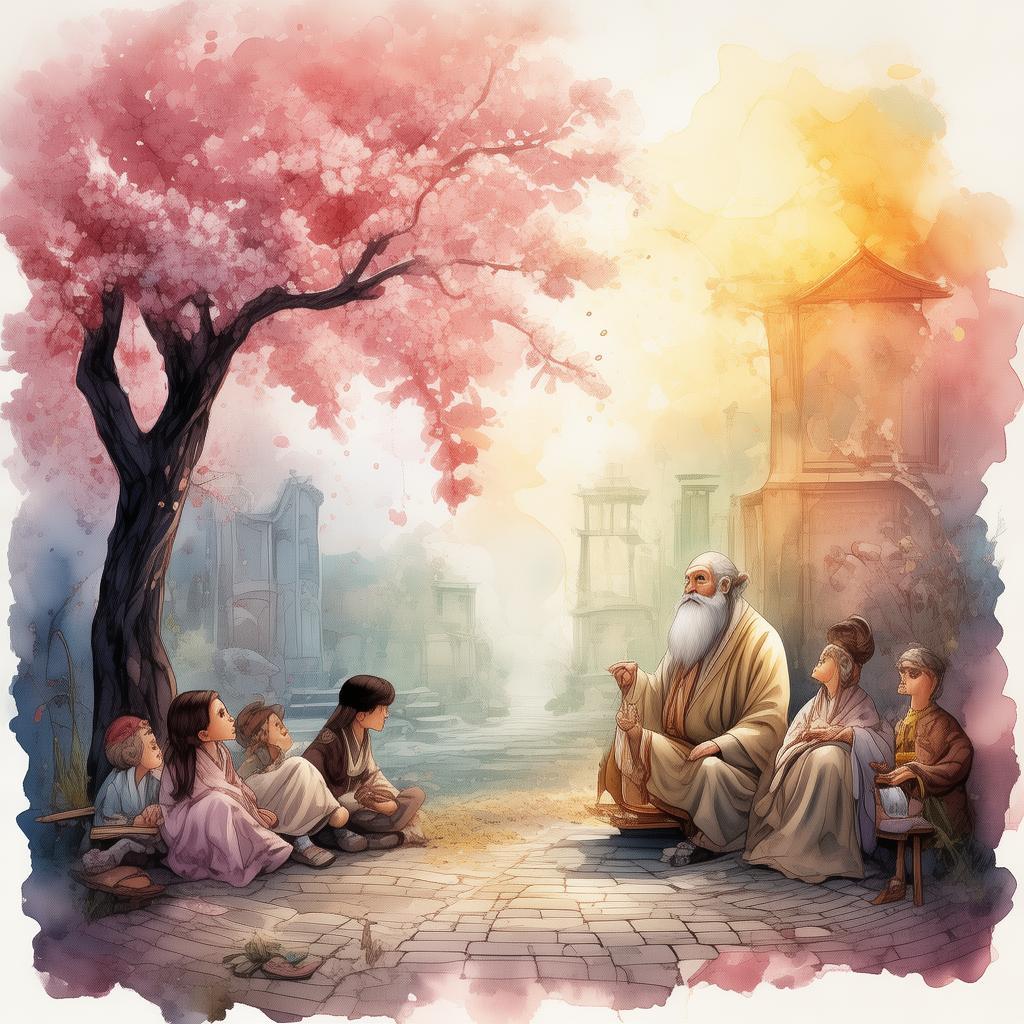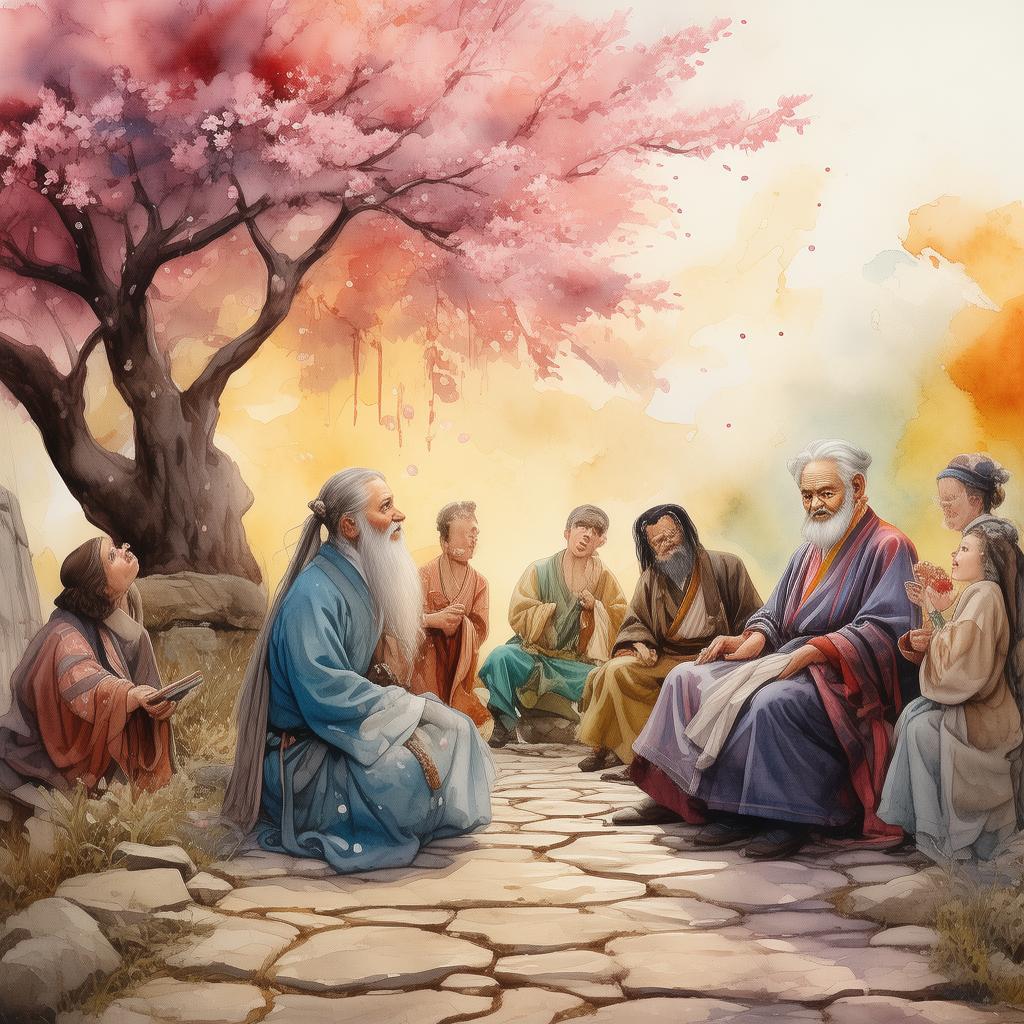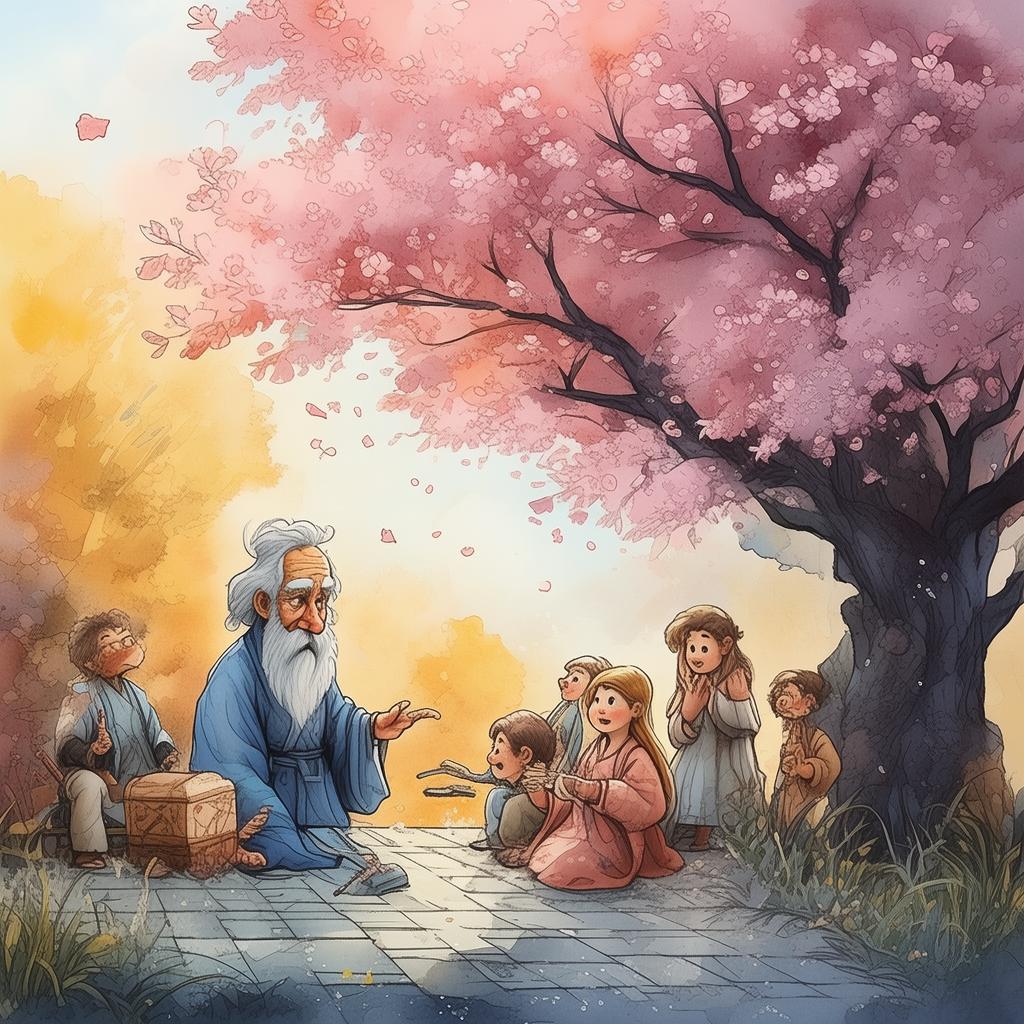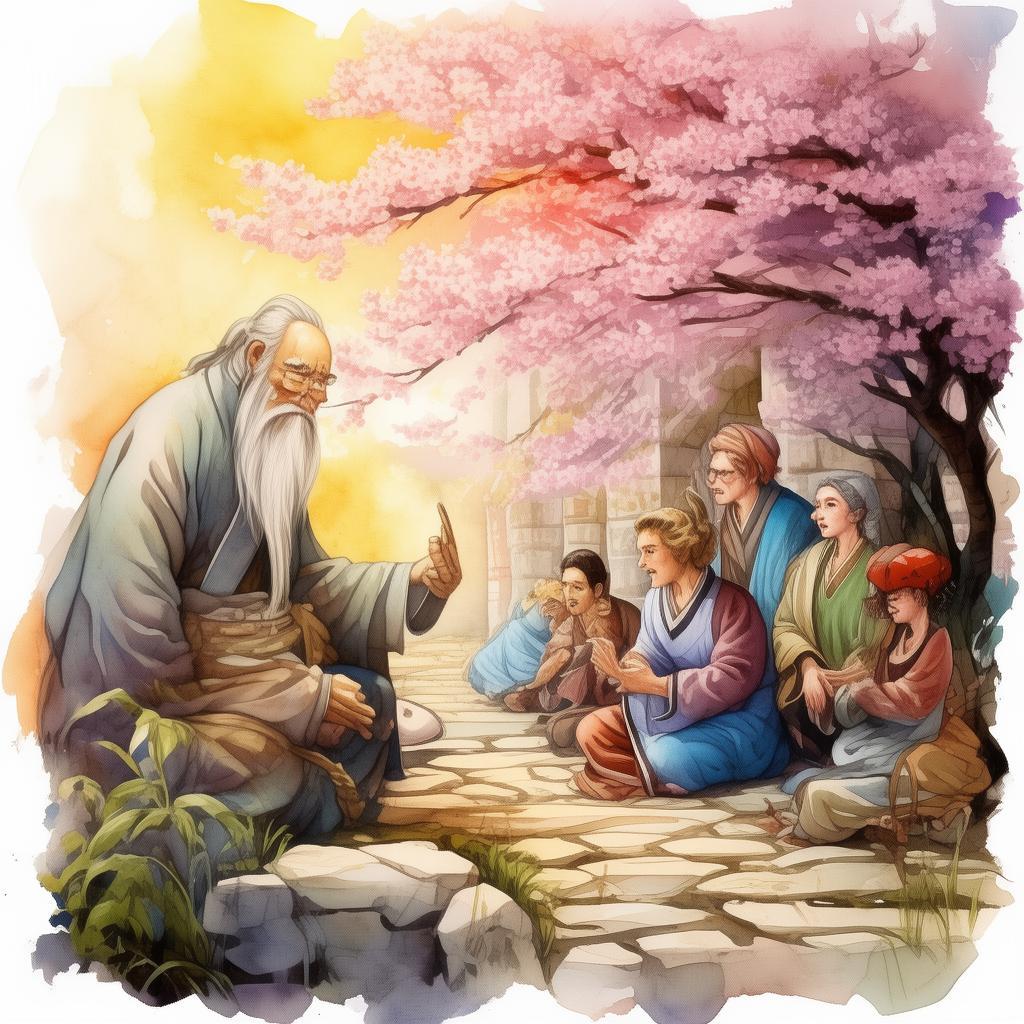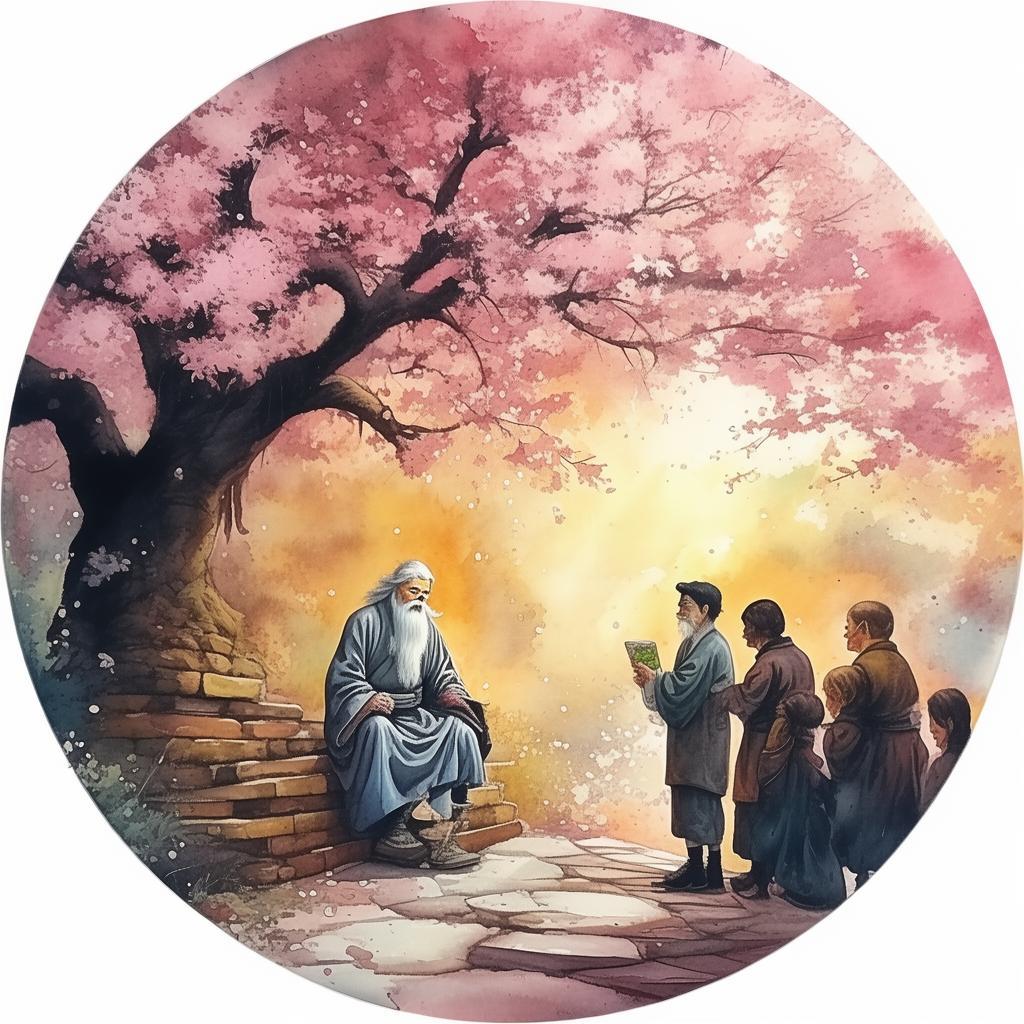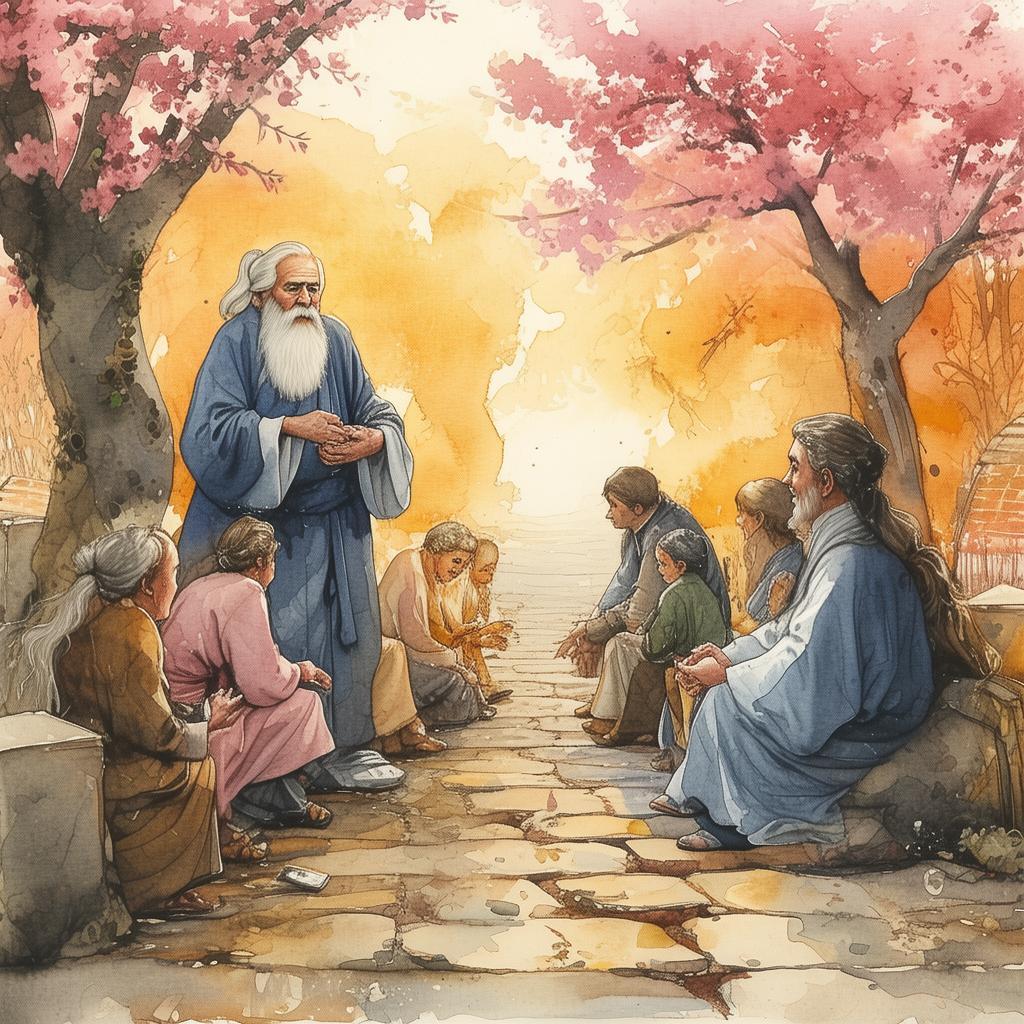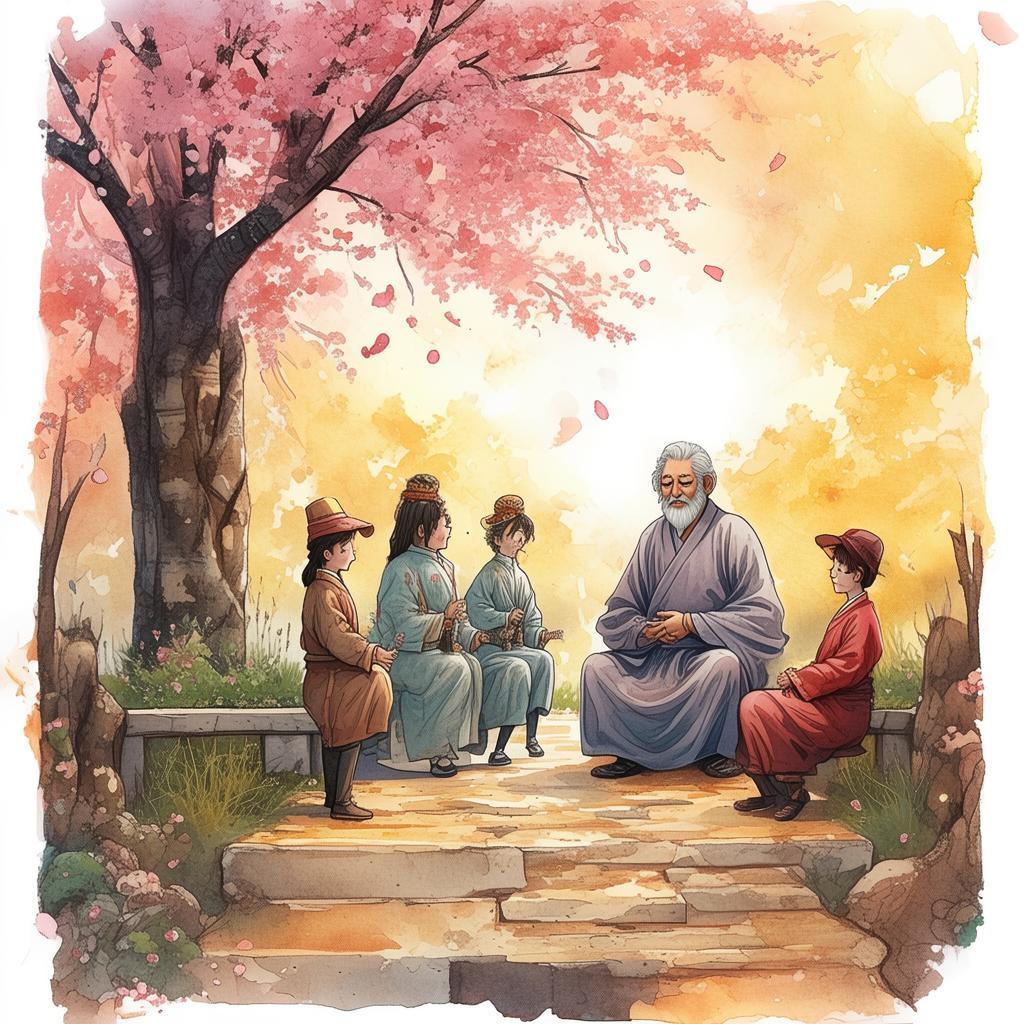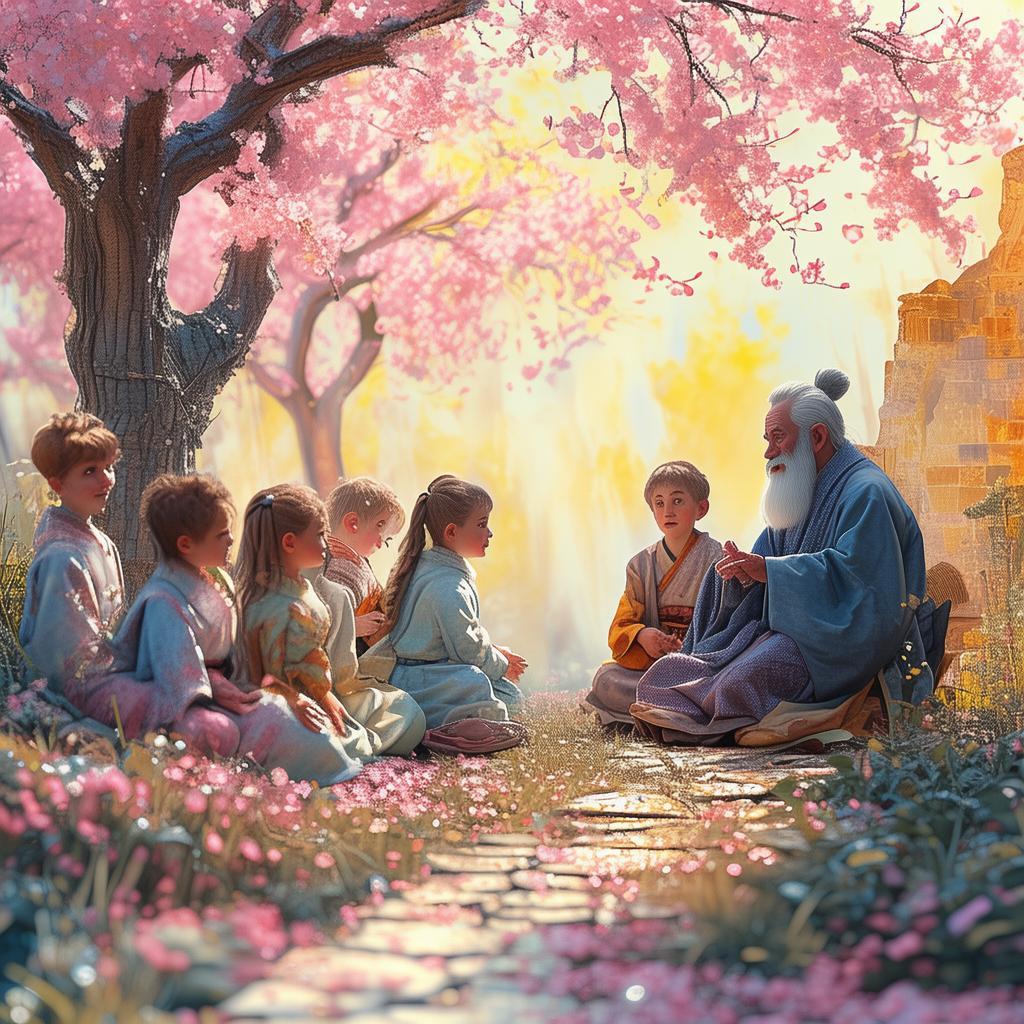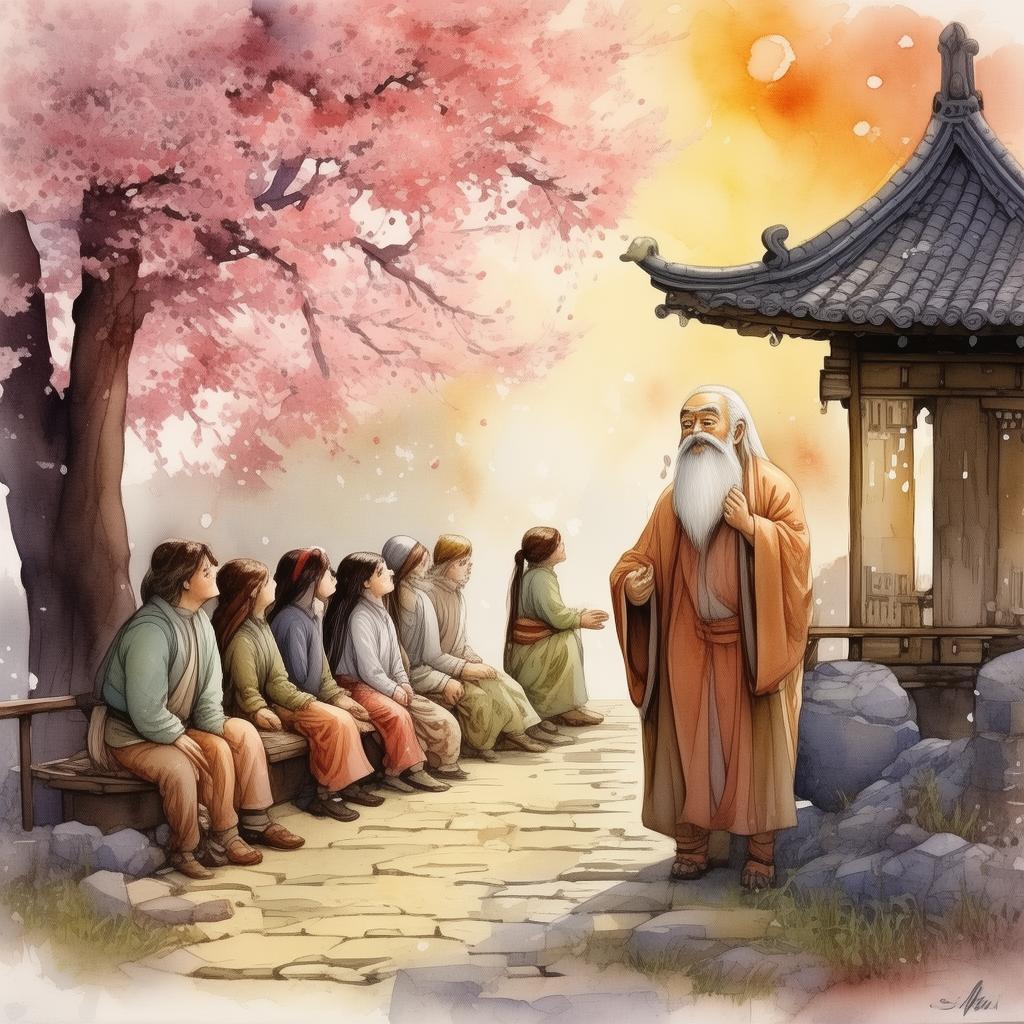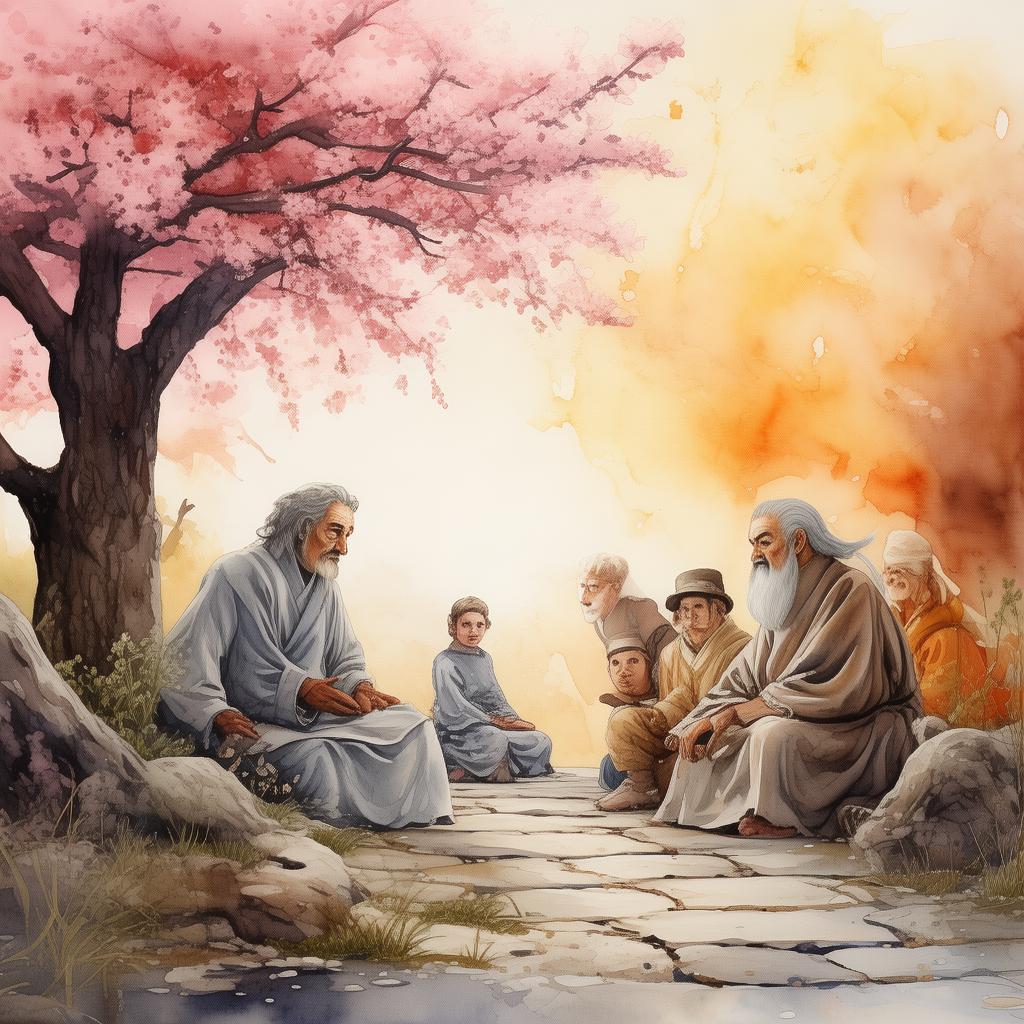The Emperor's Enigmatic Escape: A Throne's Flight into the Unknown
In the heart of the ancient kingdom of Jingyu, the Emperor, known as Ming, sat upon his golden throne, the symbol of power and authority. His rule had been long and prosperous, but the winds of change were brewing. The Emperor's Enigmatic Escape: A Throne's Flight into the Unknown tells the story of Ming's desperate bid to escape the fate that loomed over his kingdom.
The kingdom of Jingyu was rich in history and steeped in mystery. The Emperor, Ming, was a man of wisdom and cunning, but his reign was marked by a growing unrest among the common folk. The court was rife with intrigue, and whispers of rebellion echoed through the halls of power. Ming knew that if the revolution were to succeed, it would not only bring an end to his rule but also to the lives of countless innocent souls.
As the revolution gathered momentum, Ming sought the counsel of his most trusted advisor, the Grand Minister, who was a master of strategy and a cryptic figure himself. The Grand Minister, known as the Enigma, revealed to Ming that the throne was not just a symbol of power but also a curse. It was said that the true heir to the throne was not born of royal blood but of a prophecy foretold by the ancient sages.
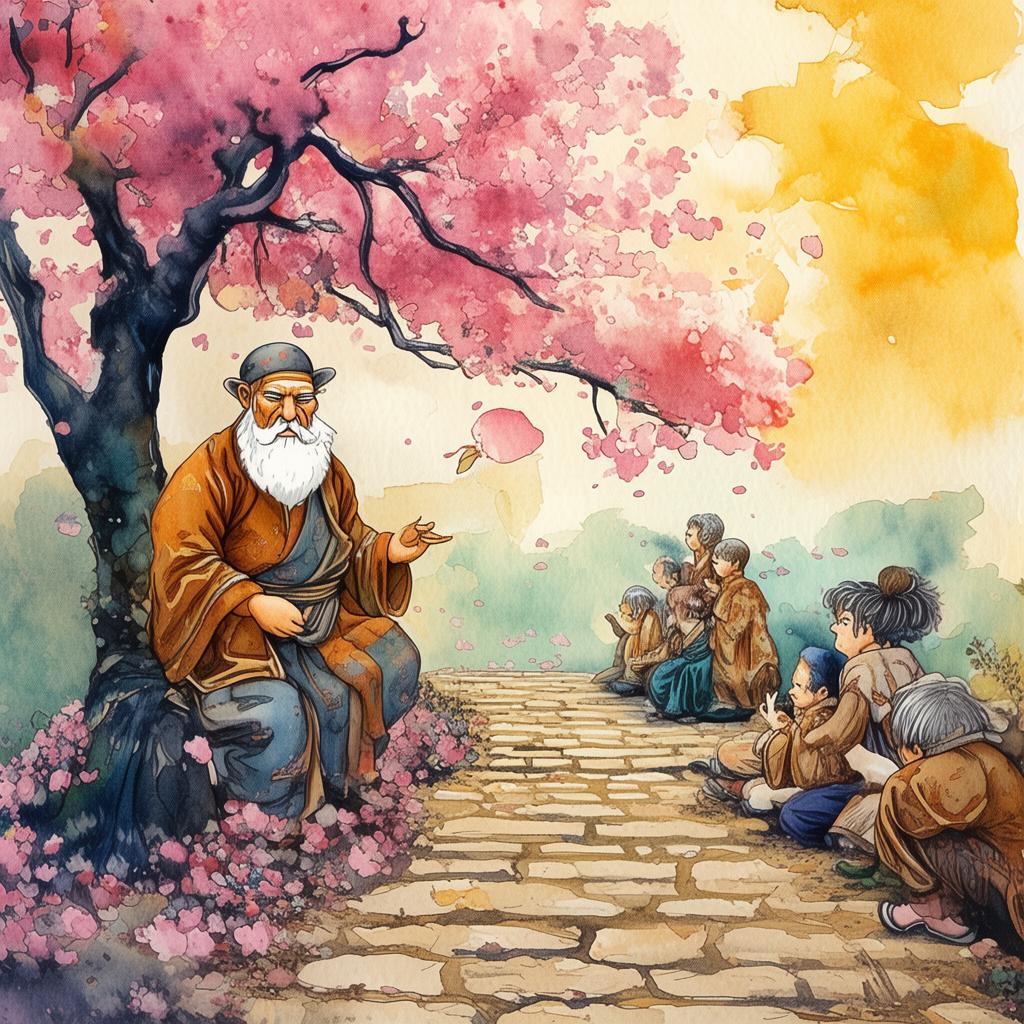
The prophecy spoke of a child, born of the earth and the sky, who would challenge the throne and bring about a new era. Ming, aware of the prophecy, knew that the time had come for him to leave the throne. But how could he escape without revealing the truth to the revolutionaries who sought to take his power?
The Emperor's Enigmatic Escape began on a moonless night, when Ming, dressed in plain robes, left the palace grounds. He was accompanied only by his loyal guards, who were sworn to secrecy. Ming's journey was fraught with danger, as the revolutionaries were hot on his trail.
As they traveled through the dense forests and treacherous mountains, Ming's guards were tested to the limit. The path was fraught with obstacles, and each step brought them closer to capture or death. Ming, however, remained resolute, his eyes filled with determination and a touch of fear.
One night, as they camped by a rushing river, Ming confided in his guards that the throne was a burden he could no longer bear. He had come to believe the prophecy, and he knew that his escape was not just for his own survival but for the kingdom's future. The guards, moved by their emperor's words, vowed to protect him with their lives.
The next day, as they approached a remote village, Ming realized that his journey had only just begun. The village was under the control of the revolutionaries, and Ming knew that a single misstep could lead to his capture. It was here that Ming's plan took a turn for the worse.
The Grand Minister, the Enigma, had sent a message to Ming that he had been betrayed by one of his closest guards. Ming, torn between loyalty and survival, had to make a difficult decision. He chose to trust the guard, but as they reached the village, Ming was confronted with a shocking truth.
The guard had indeed been a spy for the revolutionaries, and Ming was taken captive. The revolutionaries, led by a charismatic leader named Hong, believed they had caught the man who had wronged their kingdom. Ming, now a prisoner, was forced to face the consequences of his actions.
Hong, intrigued by Ming's regal bearing and intelligence, decided to test the emperor's worth. He offered Ming a chance to prove his innocence by solving a riddle that had been hidden in the village for centuries. If Ming could solve the riddle, he would be set free. If not, he would be executed.
The riddle was a complex one, involving ancient symbols and cryptic clues. Ming, using his vast knowledge and wit, deciphered the riddle. It led him to a hidden chamber beneath the village, where he found a treasure trove of ancient artifacts. Among these artifacts was a scroll that contained the truth about the prophecy and the true heir to the throne.
Ming realized that the revolutionaries were on the right path, but their leader, Hong, was driven by a thirst for power rather than justice. Ming, with the scroll in hand, knew he had to act swiftly. He managed to escape from Hong's grasp and made his way back to the forest where his loyal guards awaited.
Together, they returned to the village, and Ming confronted Hong. Ming revealed the truth about the prophecy and the importance of peace over power. Hong, humbled by Ming's wisdom, agreed to lay down his arms and join Ming in restoring order to the kingdom.
The Emperor's Enigmatic Escape had brought Ming face-to-face with his own fears and the hidden truths of his kingdom. It had also shown him the strength within himself and the power of unity. Ming, now with the support of Hong and his loyal guards, returned to the throne, not as a ruler of power, but as a guardian of peace and justice.
In the end, Ming's journey was not just about escaping the throne but about escaping the burden of his own expectations and finding a path to a new beginning. The kingdom of Jingyu flourished under Ming's rule, and the legend of the Emperor's Enigmatic Escape became a tale of hope and resilience, passed down through generations.
✨ Original Statement ✨
All articles published on this website (including but not limited to text, images, videos, and other content) are original or authorized for reposting and are protected by relevant laws. Without the explicit written permission of this website, no individual or organization may copy, modify, repost, or use the content for commercial purposes.
If you need to quote or cooperate, please contact this site for authorization. We reserve the right to pursue legal responsibility for any unauthorized use.
Hereby declared.
